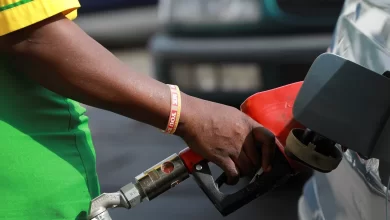Naira Dips To N1,050 As Foreign Reserves Deplete To 7-year Low

The value of the naira rescinded some of its gains yesterday selling at N1,050 to the dollar at the parallel market, as the external reserves of the country declined to its lowest level in nearly seven years. The 30 days moving average of the external reserves currently stands at $32.612 billion, according to the latest data provided by the Central Bank of Nigeria (CBN), the lowest level that the country has seen since September 29, 2017 when the reserves depleted to $32.49 billion. Between then and now, the reserves had achieved a high point of $47.86 billion on May 15, 2018.
Having appreciated from N1,130 to N1,000 to the dollar on the streets on Monday, the value of the naira depreciated to N1,050 on Tuesday.
This is as economic analysts say using the foreign reserve to defend the naira, though an inevitable move in the face of the massive depreciation of the local currency, cannot be sustained over the medium to long term.
The 30-day moving average of the external reserves had depleted by $1.837 billion, or 5.3 per cent, between March 18, 2024 and April 12, 2024 following the several interventions in the foreign exchange market by the Central Bank of Nigeria (CBN) in an effort to stabilise the naira.
The CBN’s approach, which has contributed to the naira’s appreciation to N1000 to the dollar at the parallel market and its stability around N1,136 to the dollar at the official window, involves reinstating discounted sales to Bureau de Change operators to enhance market liquidity, and intervening in the official exchange market.
Latest data on the website of the apex bank showed that compared to $34.449 billion which the reserves was as of March 18, the highest point so far this year, it had continued to deplete with occasional appreciations to stand at $32.612 billion by April 12, 2024.
The CBN’s strategy which has aided the naira strengthen to N1000/$1 at the parallel market and it hovering around N1,130/$1 at the official window includes resuming sales to Bureau de Change operators at discounted rates to boost market liquidity and intervening in the official window.
With the upcoming Afreximbank loan on the horizon, coupled with recent increases in the monetary policy rate that have piqued the interest of foreign portfolio investors, and the surge in crude oil prices, it is anticipated that the reserves will see a significant uptick in the weeks ahead.
Professor of Economics at the Lagos Business School, Prof. Bongo Adi, said it was expected that the country’s foreign exchange savings will be used to support the naira.
“With the exchange rate at N1,900 if nothing was done Nigeria was going to suffer; people would have died.
“So, what could be done is to use what savings we had accumulated to safeguard the currency for the time being and remove speculation. Naira will stabilise, it will increase productivity and with productivity increased, inflation will reduce, and with inflation reduced the currency will gain value and we can meet our obligation and gradually we will begin to build back the reserves.
“The issue is, do we just keep it there and die or use it to invest and reactivate the productivity in the system, catalyse investment and make more money and build it back. What is important for us is that we need to have enough to cover up to six months of imports, and yes, we have enough.
“What every Nigerian desires is that there is some sort of sanity and stability and a level of enforcement such that we know that there are consequences for actions. I don’t see the depleting reserves as something to worry about.”
However, Professor of Law and developmental economist, Prof. Tayo Bello, on his part, noted that the use of the nation’s reserves to support the naira is not sustainable.
“All along the exchange rate is artificially inseminated. The practicability aspect of it is that the foreign exchange cannot be gotten at the prevailing exchange rate.
“They (CBN) have been draining the external reserves and will continue to drain it to the lowest level. They are intervening and regulating the exchange rate unlike the free float which will create problems, but this is not the way to do it. They are quoting N1,000 but why do we still have high inflation, particularly foreign goods. Why are prices of goods not coming down? The former governor of Kaduna state, Nasir el-Rufai has mentioned recently that the Tinubu government is paying more than the previous government in the area of subsidies.
“People are now using the submarine black market which is one that can’t be seen and quoting higher prices. While I am not saying they should allow the naira to be floated, it should not be gagged and people should not be terrorised over it.”



